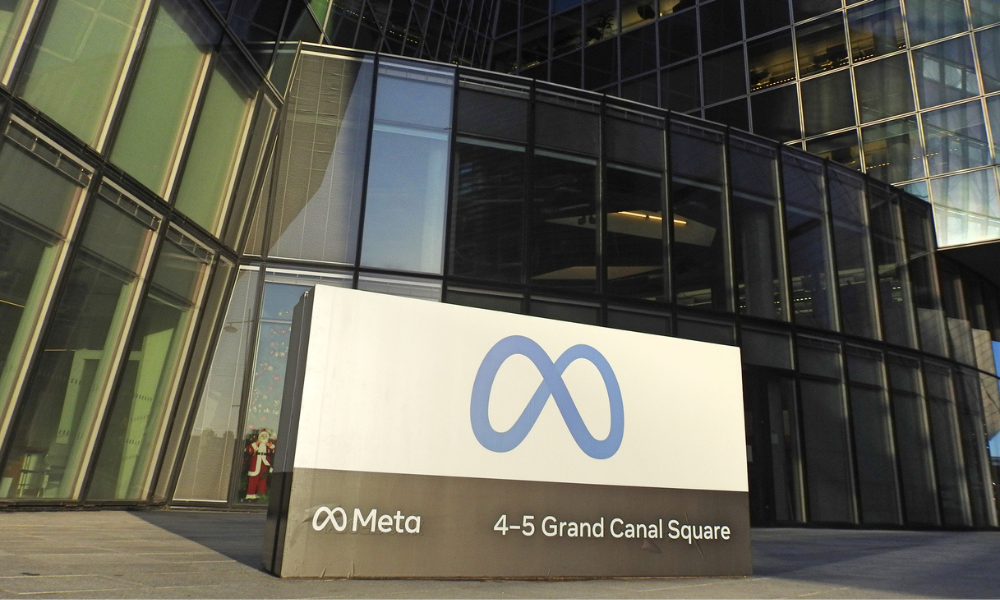

Meta Platforms Inc. and Amazon.com Inc. spent 2023 cutting costs and refocusing their businesses. It was a strategy that upended the lives of tech workers in Seattle and Silicon Valley but appears to have paid off handsomely for investors who are likely to continue reaping benefits.
Both companies reported better-than-expected earnings on Thursday, sending their stock prices soaring by a combined $272 billion in premarket trading and validating the belt-tightening strategies that defined the tech industry’s past 16 months.
Meta, which cut head count by 22% in 2023, unveiled plans for a $50 billion stock buyback, and even announced its first ever quarterly dividend — a sign to investors that it has money to spare and a reason for them to stick around. Amazon investors asked about any plans to return capital to shareholders and executives were noncommittal. Amazon initiated its biggest-ever round of corporate job cuts beginning in 2022 that affected about 35,000 people last year. Already in 2024, the company has said more positions will be eliminated in its Prime Video, studios and Twitch livestreaming businesses
Investors were happy to see tech companies — often prone to splurge on moonshot projects with no foreseeable payout — narrow their investments on profitable business lines, said Gil Luria, managing director at D.A. Davidson & Co.
“This new found cost discipline is paying off for investors as these companies were able to prune less productive businesses while still being able to invest some of those savings in the faster growing parts of their business,” he said. “At the same time, these companies have been able to accelerate revenue growth, thus significantly increasing margins.”
Both companies also reported holiday quarter revenue growth in their central businesses — digital advertising for Meta and e-commerce sales for Amazon — that surpassed estimates. The results sent Meta’s shares up 15% in extended trading while Amazon’s stock rose more than 7%.
Meta Chief Executive Mark Zuckerberg acknowledged that the strong business results raise questions about whether Meta should start investing heavily again.
“The biggest thing that’s holding me back from doing that is that at this point I feel like I’ve really come around to thinking that we operate better as a leaner company,” he said Thursday. “There are always these questions about adding a few people here or there to do something, and I guess I just have more of an appreciation about how all of that adds up.”
Zuckerberg stands to get about $700 million a year from the company’s first-ever dividend, according to data compiled by Bloomberg.
For years, Meta and Amazon reinvested profits back into the companies, fueling hiring sprees and expanding into new technologies and business lines. The strategy was increasingly apparent in the wake of the Covid-19 pandemic, when both companies spent aggressively. Meta’s headcount increased 30% in 2020, and another 23% in 2021, while pivoting the entire company toward a massive investment in augmented and virtual reality technology dubbed the metaverse. Amazon, for its part, doubled the size of its logistics network to meet pandemic demand and increased its workforce almost 30% in 2022 before it cooled on hiring and building new facilities.
The question now becomes whether leaner, more focused versions of Meta and Amazon can continue to strive for the bold and ambitious tech advancements that have made them household names.
In Meta’s case, that includes spending aggressively on artificial intelligence advancements, both in generative AI but also on the background technologies to help feed it social media products and power its ad targeting. Zuckerberg is also still committed to VR and AR headsets, and the company’s Reality Labs division building these kinds of technologies still lost $16 billion in 2023.
Zuckerberg said he plans to keep headcount growth “relatively minimal” for 2024 and beyond despite the lofty ambitions. “Until we reach a point where we are just really under water on our ability to execute, I kind of want to keep things lean because I think that’s the right thing for us to do culturally.”
Amazon CEO Andy Jassy said Amazon reduced the cost to serve a customer’s order by 45 cents per unit in 2023, its first decrease on that metric in five years, and he vowed to continue to look for ways to bring those costs even lower.
CFO Brian Olsavsky said the company would be cautious about new investments. “Where we can find efficiencies and do more with less, we’re going to do that as well,” he said.

Executives from LPL Financial, Cresset Partners hired for key roles.

Geopolitical tension has been managed well by the markets.

December cut is still a possiblity.

Canada, China among nations to react to president-elect's comments.

For several years, Leech allegedly favored some clients in trade allocations, at the cost of others, amounting to $600 million, according to the Department of Justice.
Streamline your outreach with Aidentified's AI-driven solutions
This season’s market volatility: Positioning for rate relief, income growth and the AI rebound
